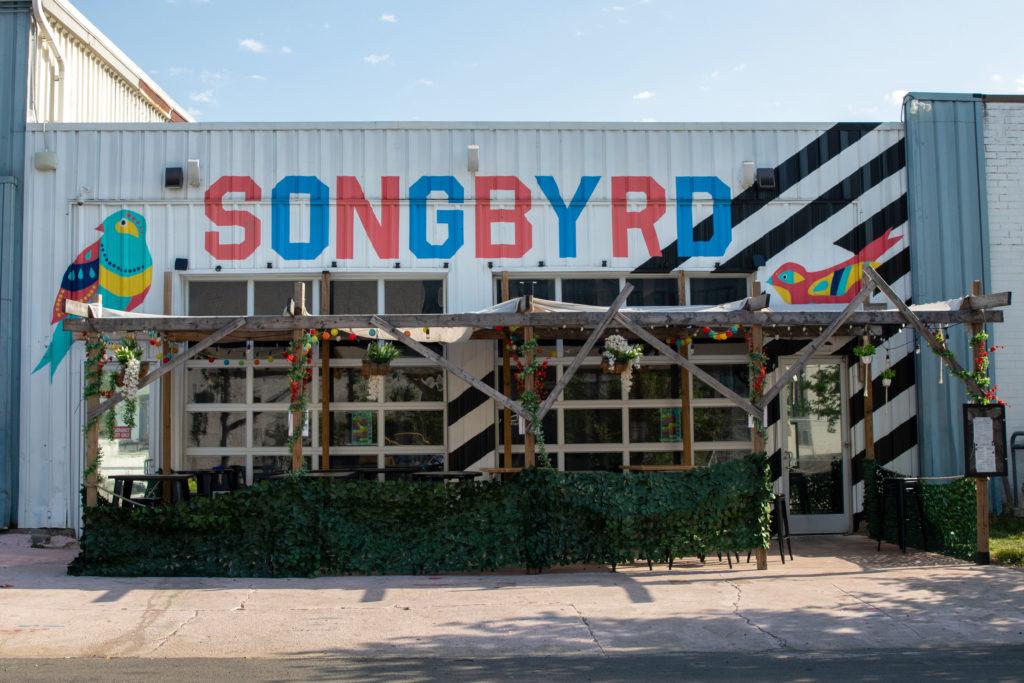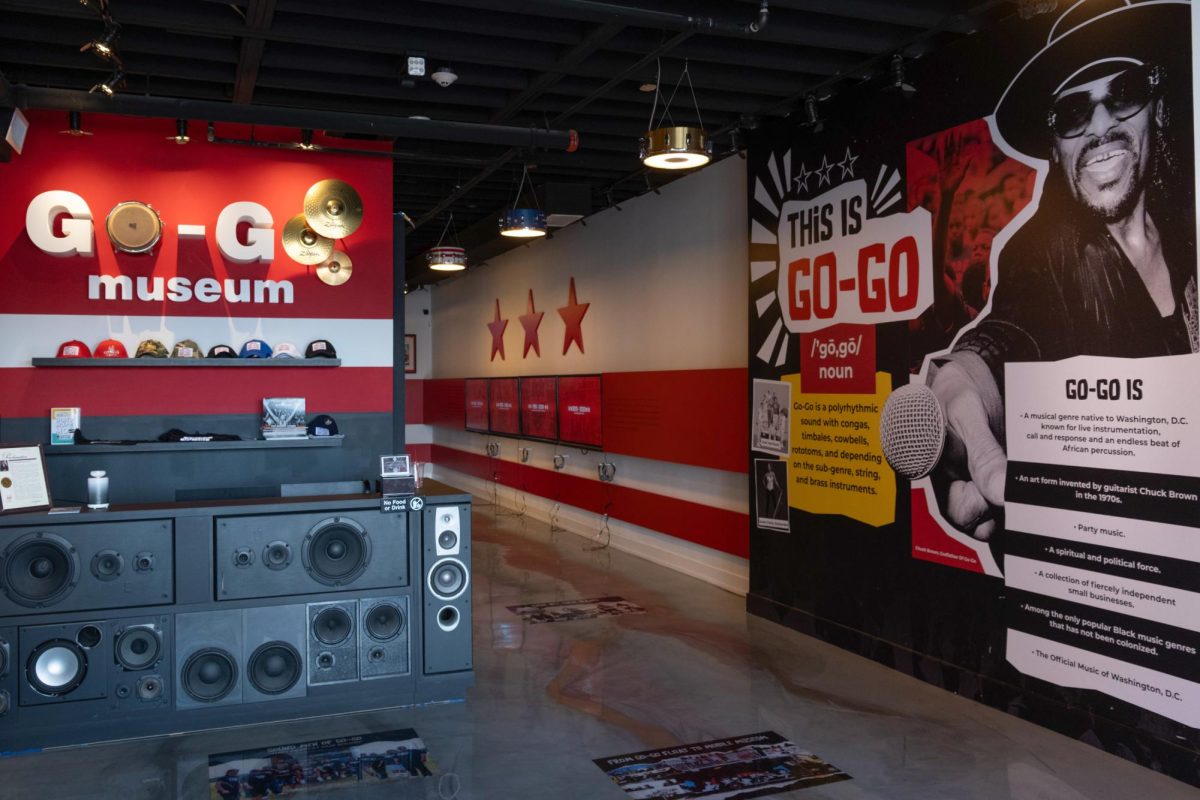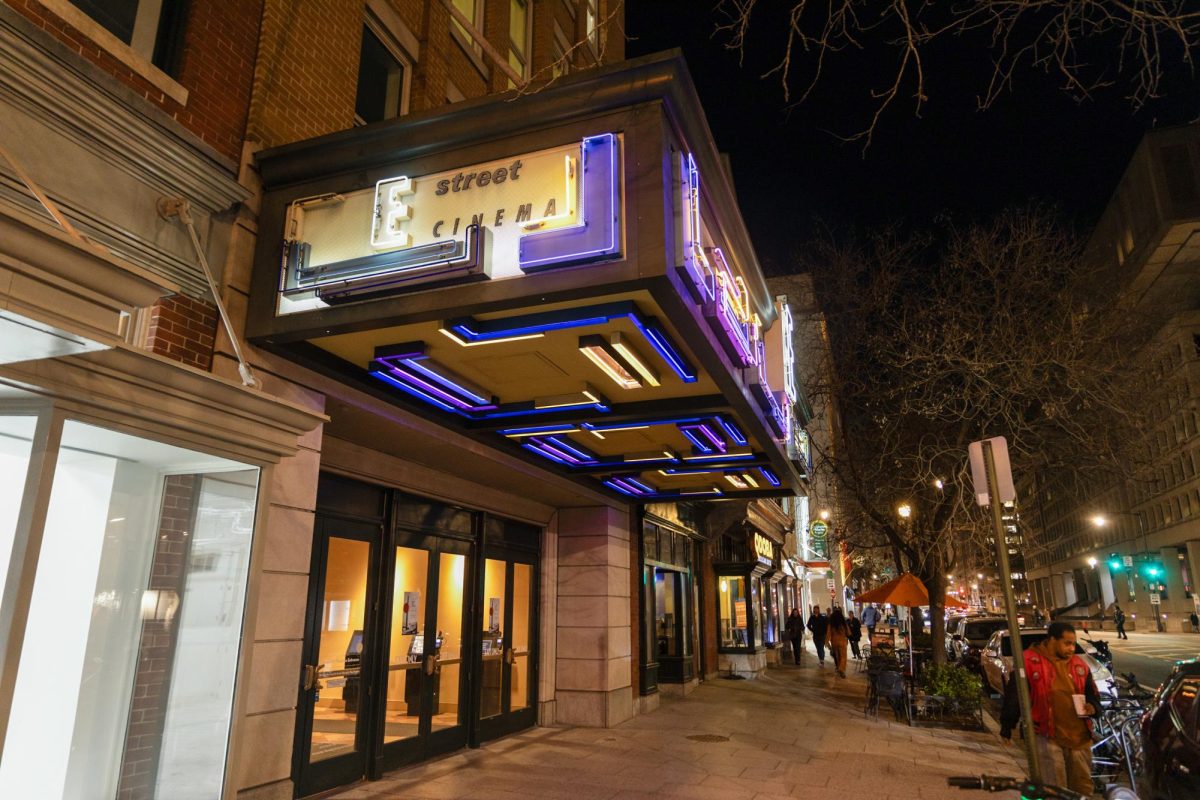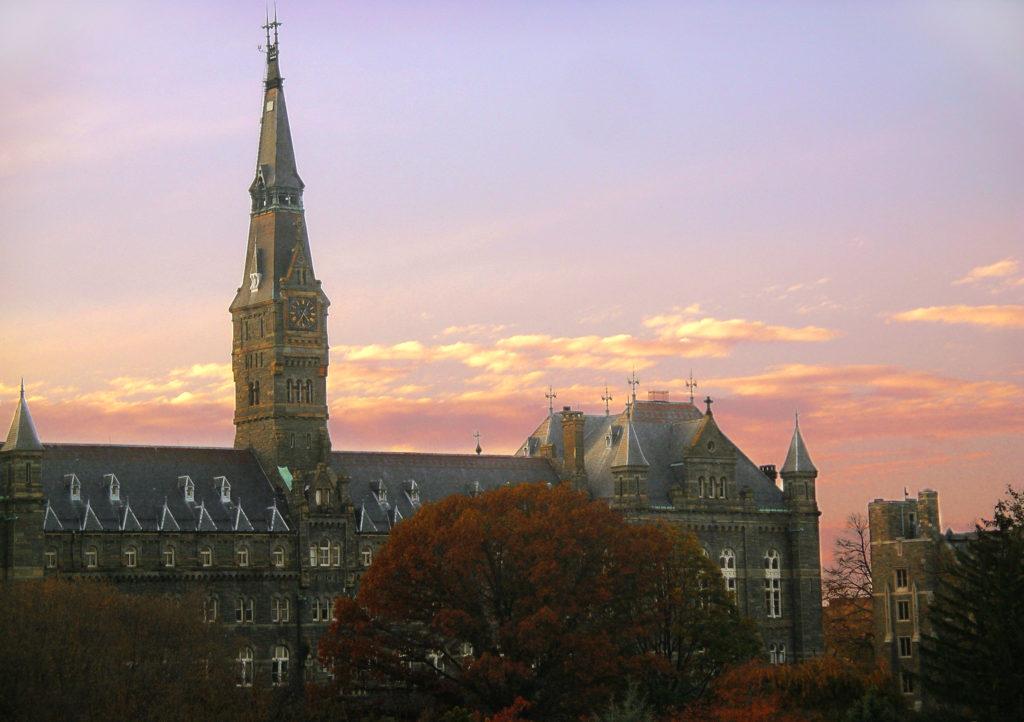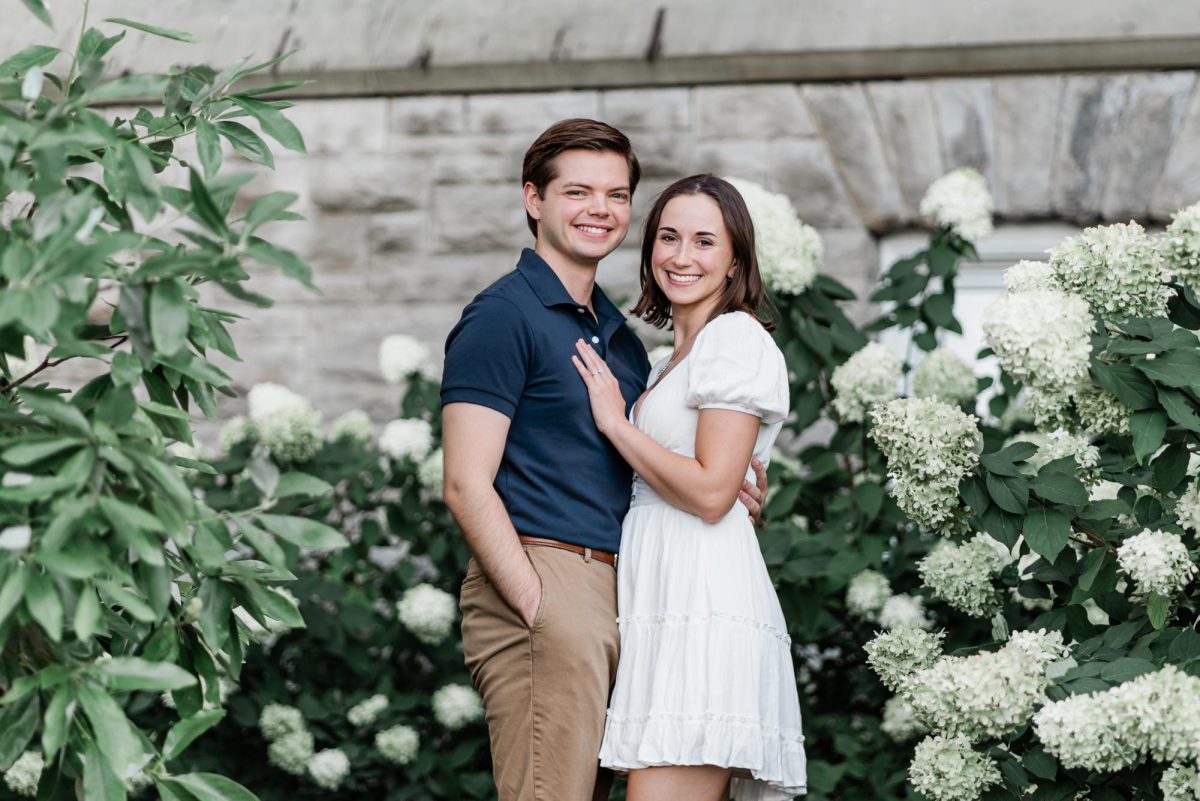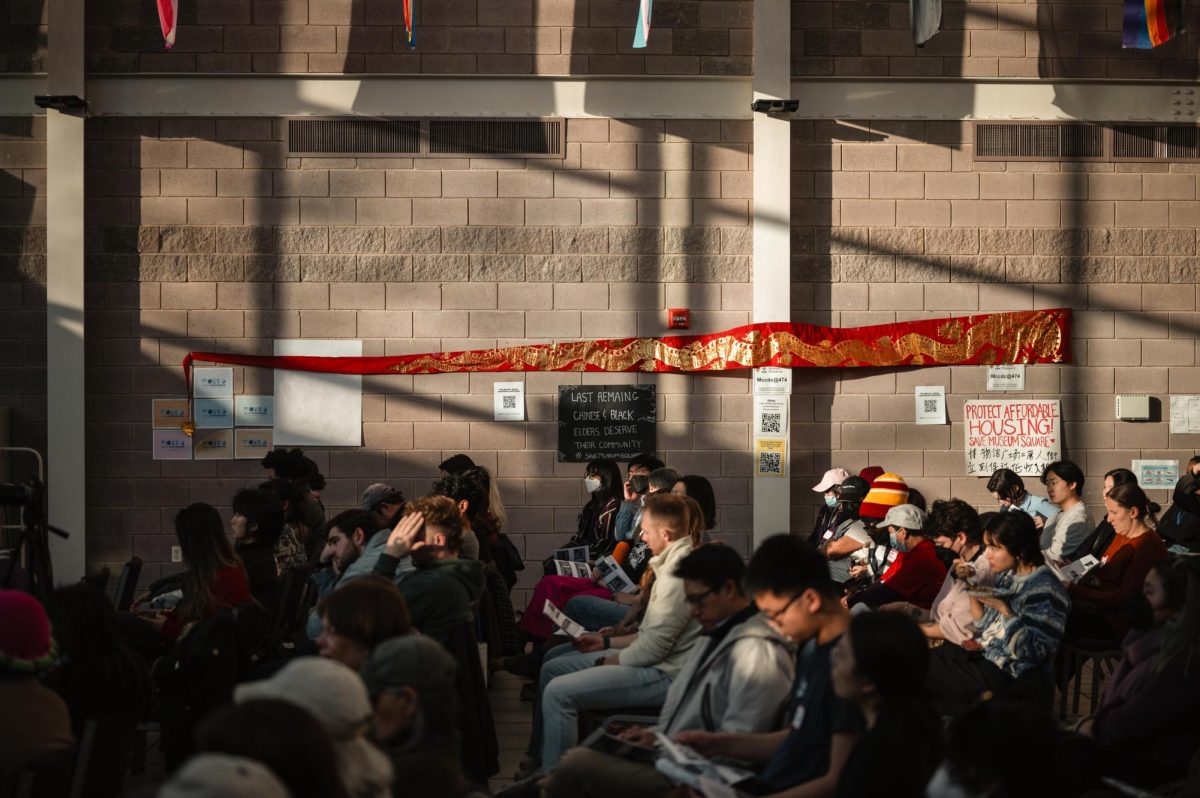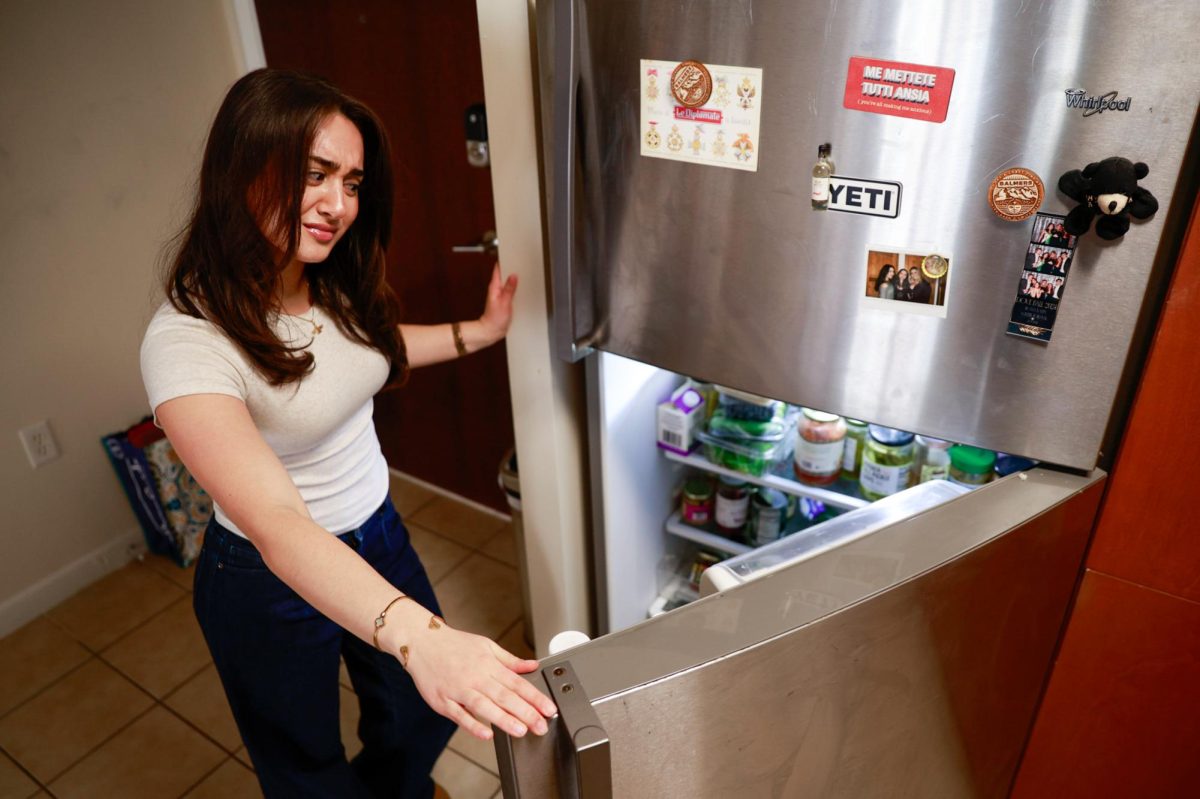From sticky floors to untamed moshing, small venues have created a vibrant underground rock community in D.C. based on comradery and inclusion for decades.
Hardcore and punk rock music emerged in the late 1970s as a rebellion against elites and economic inequality to create a colorful counter-cultural scene in the District and cities nationwide. While local venues around the city are known to host a wide variety of music genres like R&B, hip-hop and go-go, the owners and employees of these spots have continued to promote local rock artists to keep the scene alive across a series of small venues, including The Pocket, Songbyrd, The Runaway and DC9 Nightclub.
The hardcore and punk community thrived off the do-it-yourself and anti-conformity ethic, working with whatever instruments, equipment and performing space artists had, making the music experimental and thrash. With the rise in popularity of bands like Bad Brains and Fugazi, the city established its prominence on the rock scene. Commenting on capitalism, gender and sexuality, hardcore punk in D.C. developed with help from the District’s small rock venues that have uplifted amateur artists, including punk rockers Ekko Astral, a band recognizable for addressing gender transition, and anti-patriarchal band Bacchae. These venues, defined by their confined physical space and rugged atmosphere, have lived on through an intimate community of rockers.
We spoke to owners and staff members of these local venues about the evolution, culture and community of D.C.’s rock scene.
The Pocket
Miles Ryan started 7DrumCity, a local center for musicians to learn and perform together, when he began offering drumming lessons out of his living room in 2010. Today, the community center has grown from a one-man show to an entire staff residing in Truxton Circle. Its current building houses The Pocket, an intimate 70-person venue lit up with multi-colored lights and black sound-dampening panels lining the walls.
Amanda Dove, 7DrumCity’s director of marketing and community development, said The Pocket hosts open mic nights for bands and solo artists, masterclasses taught by local “rockstars” and FLASHBAND, a program that matches solo artists together to form bands. She said the events 7DrumCity hosts throughout the year create a learning and rehearsing environment that helps strengthen the District’s rock community.
“We definitely want to be a champion for our local bands,” Dove said. “So much of 7DrumCity and The Pocket ethos is about supporting the local music community. Everyone’s so ambitious and supportive. I think that’s like the coolest thing about 7DrumCity. It definitely feels like a family atmosphere.”
Dove said The Pocket got its name from a term used in go-go music to describe its underlying beat, and the venue has hosted go-go bands over the years. Go-go, a genre that originated in D.C. during the late 1970s, fuses genres of funk, blues and rhythm with African and Latin influences. Washingtonians like bandleader Chuck Brown, who is credited for the creation of the genre, and Rare Essence, one of the most prominent bands in the local music scene, have defined the music.
“If you walk around and you hear someone banging on buckets or whatever, it’s generally a go-go beat, and that’s just the soundtrack of our city,” she said.
1508 North Capitol St. NW. Open daily from 7 to 11:30 p.m.
Songbyrd Music House
Owners of Songbyrd Music House Joe Lapan and Alisha Edmonson relocated Songbyrd from Adams Morgan to Union Market District in 2021, opening the new space with a cleaner sound system, wider stage, large floor space and 17-foot-high ceiling teeming with string lights. The newly renovated venue still has a warehouse feel, which lends itself well to the experimental nature of punk and hardcore concerts.
“It’s a clear sound system without kind of blowing your ears out,” Edmonson said. “As a shorter person, I built the stage for my viewpoint.”
Lapan said the venue’s capacity of 250 people allows him and Edmunson to draw in crowds with touring musicians while also booking local artists to build the performers’ prominence.
Edmonson said she noticed D.C.’s rock scene has a sense of inclusivity, staying true to the origins of the punk scene and encouraging people to get involved at any age.
“This is the only city I’ve ever lived in where it’s all ages all the time, and I think that started from the punk scene,” Edmonson said.
540 Penn St. NE. Open Sunday from 11 a.m. to 3 p.m. and 7 p.m. to midnight, Monday to Thursday from 7 p.m. to midnight, Friday from 7 p.m. to 2 a.m. and Saturday from 11 a.m. to 3 p.m. and 7 p.m. to 3 a.m.
The Runaway
In early 2022, Christine Liyea opened concert locale The Runaway, named after iconic 1970s all-woman band, The Runaways. With string lights, sequin curtains and vintage tchotchkes, the space feels like you’re stepping into a 1970s, patchouli-scented fever dream.
Brain Dudolevitch, the manager of The Runaway and its sister venue Slash Run, said the “killer” sound system and solid stage allow the restaurant and bar to turn into a full-fledged music venue at night.
“A lot of the neighborhood regulars are hanging out in the bar, and they hear soundcheck,” he said. “And it sounds cool – they’re like ‘Yeah, let me buy a ticket and stick around.’ So you actually end up exposing some of the neighborhood regulars who are just hanging out on Friday afternoon.”
Dudolevitch said The Runaway books a diverse array of genres for performances, from indie to emo to ska, but their favorite acts are punk and rock n’ roll.
“People still hang on to the hardcore punk thing from the ’80s, but D.C.’s got these cool little pockets and everything, like there’s a driving metal scene,” Dudolevitch said. “We got all these touring acts with some local support, but people come out to support them.”
3523 12th St. NE. Open Sunday from 9 a.m. to 10 p.m., Monday through Wednesday from 5 p.m. to midnight, Thursday from 9 to 2 a.m., Friday from 8 to 3 a.m. and Saturday from 9 to 3 a.m.
DC9 Nightclub
In 2004, Bill Spieler co-founded DC9, a three-level music venue, bar and restaurant in the same building where he DJed rock music in past venues like Asylum and Club Hollywood during the 1980s and 1990s.
Today, the first floor and roof deck serve as a bar area, but most of the action happens on the red-and-black-painted second level featuring a corner stage. The floor’s dark ambience, proximity to the musicians on the low stage and surrounding speakers make it the perfect place to throw your hair around and stomp your Dr. Martens.
As an owner, Spieler said it’s a balancing act when booking artists. He said he wants to uplift local bands but also get enough people in the door to keep the venue alive. He said many times they’ll “take chances” on local bands’ ability to draw an audience, which usually pays off.
He said the rock scene in D.C. has become incredibly vibrant, noting that the District’s close-knit rock community makes it distinctive from other cities.
“It’s kind of the benefit of being a quote-unquote small town,” Spieler said. “People get along with each other quite well.”
1940 9th St. NW. Open Sunday through Thursday from 5 p.m. to 1 a.m., Friday from 5 p.m. to 3 a.m. and Saturday from 3 p.m. to 3 a.m.


